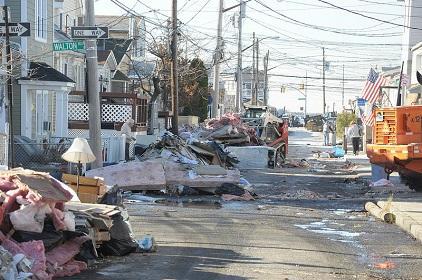
The private sector is responsible for the lion's share of investment, meaning that risk-sensitive approaches are critical to prevent disasters
By Jonathan Fowler
CANCUN, Mexico, 25 May 2017 – Businesses and the authorities need to work hand in hand to prevent natural and human-induced hazards from sparking disasters, a top international conference has heard.
Participants at the 2017 Global Platform for Disaster Risk Reduction have this week put the spotlight on engagement between the private and public sector as part of a collective effort to build resilience.
“The most vulnerable part of our communities is not the big infrastructure. It’s the homes and the small businesses,” said Mr. Aris Papadopoulos, a board member of the UNISDR Private Sector Alliance for Disaster Resilient Societies, which is known for short as ARISE.
“Unless we engage the people who are creating the risk, we cannot make progress. We need to bring them into this discussion before disaster strike,” said Mr. Papadopoulos, former chief of construction materials group Titan America and founder of the Resilience Action Fund.
The Mexican-hosted Global Platform has drawn around 4,000 delegates – from governments, the private sector, community organizations and other groups – from more than 180 countries.
The biennial Global Platform is taking stock of efforts to implement the Sendai Framework for Disaster Risk Reduction, a 15-year agreement adopted by the international community in 2015.
While the Sendai Framework puts the onus on governments to bring about change, it is relatively unusual in the world of international agreements because it also says that other players have a specific role, with the private sector one of those singled out.
ARISE was created in November 2015. It aims to leverage business resilience know-how and encourage investment decisions that take disaster risk into account, in order to help the private sector to play its role in implementing the Sendai Framework.
A focus on the private sector is crucial, given that global disaster losses have swollen to an estimated US$520 billion a year owing to factors including climate change, rapid urbanization and the expected growth of risk-exposed assets. This growth in risky investments is often due to a lack of adequately costing disaster risk, coupled with high profit margins for investments in many areas exposed to earthquakes, tsunamis, storm surges, floods and other hazards.
In the event of a disaster, the cascading impacts result in losses far beyond that of the principal investor. The resilience of businesses is critical – whether they are one-person operations or multinationals whose supply chain disruptions can sow global havoc – notably because the private sector is responsible for 75 percent of investment in infrastructure. In addition, resilient businesses are a core element of resilient communities.